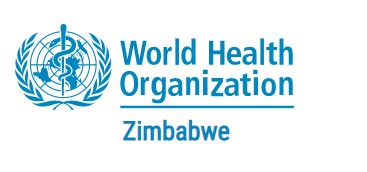Despite their prevalence and devastating impact on communities, Neglected Tropical Diseases (NTDs) often receive limited funding and scant media coverage. This neglect has fostered a vicious cycle of poverty, disease, and disability, trapping millions of people in a state of perpetual suffering particularly for women and children. Reversing this trend requires a comprehensive approach that combines prevention, treatment, collaboration, active community involvement as alluded to by the Health and Child Care Permanent Secretary for Zimbabwe Dr Aspect Maunganidze recently.
He emphasized the need to invest more in prevention for better outcomes for those at risk, including better education, health and employment outcomes.
“Interventions necessary to deal with the challenges include prevention and treatment, among others. We have conducted mass drug administration to prevent NTDs over the years as you know that prevention is key to disease control,” said Dr Maunganidze.
He added; “As a Ministry we also recognize the importance of engaging communities in the fight against NTDs. Government is committed to driving research and innovation NTD control. We continue to collaborate with research institutes in the country among other efforts.”
The Ministry of Health and Child Care with support from Higher Life Foundation and the World Health Organization (WHO) organized a media engagement workshop in Harare from 6-10 November 2023. The workshop provided a platform for sharing latest information on NTDs programming in Zimbabwe.
NTDs continue to affect millions of people worldwide. These diseases, often overlooked and underfunded, pose a significant threat to global health. NTDs encompass a diverse group of 20 conditions. Zimbabwe is endemic to several NTDs including bilharzia, intestinal worms, elephantiasis, blinding trachoma, rabies, leprosy, sleeping sickness, anthrax, plague, snake bite envenoming, Cysticercosis (Taeniasis) and Foodborne trematodes infections (clonorchiasis, fascioliasis, and opisthorchiasis). Bilharzia, intestinal worms, elephantiasis, and blinding trachoma are the top four common NTDs in the country.
A multi-faceted approach is therefore required, focusing on prevention, treatment, research and community engagement. Prevention involves implementing strategies such as vector control, improved access to clean water, sanitation and hygiene practices, and health education. By targeting the root causes of these diseases, prevention efforts can significantly reduce the burden of NTDs. For instance, providing access to clean water and promoting good hygiene practices can prevent the spread of diseases like bilharzia and trachoma.
Equally important is the availability of effective treatment for those already affected by NTDs. Access to affordable and quality healthcare services, including diagnosis and treatment, is crucial in line with the universal health coverage goal. Additionally, healthcare systems need to be strengthened to provide comprehensive care and support for individuals affected by NTDs.
Community engagement plays a vital role in addressing NTDs. Communities must be empowered and actively involved in disease control efforts. This can be achieved through education and awareness campaigns, community-based interventions, and the participation of local leaders and volunteers. By engaging communities, interventions can be tailored to their specific needs, cultural practices, and beliefs, thereby increasing their effectiveness and sustainability.
WHO and other international organizations have launched initiatives like the Expanded Special Project for Elimination of Neglected Tropical Diseases (ESPEN) to accelerate progress. In addition, the WHO Neglected Tropical Disease global roadmap 2021—2030 seeks to reduce the number of people requiring treatment for these diseases by 90% and reduce associated disability by 75%. The roadmap, endorsed through the African Regional Framework for the control, eradication and elimination of tropical and vector borne diseases, encourages governments to provide leadership and commit to the achievement of global and national targets.
Distributed by APO Group on behalf of World Health Organzation (WHO) – Zimbabwe.
